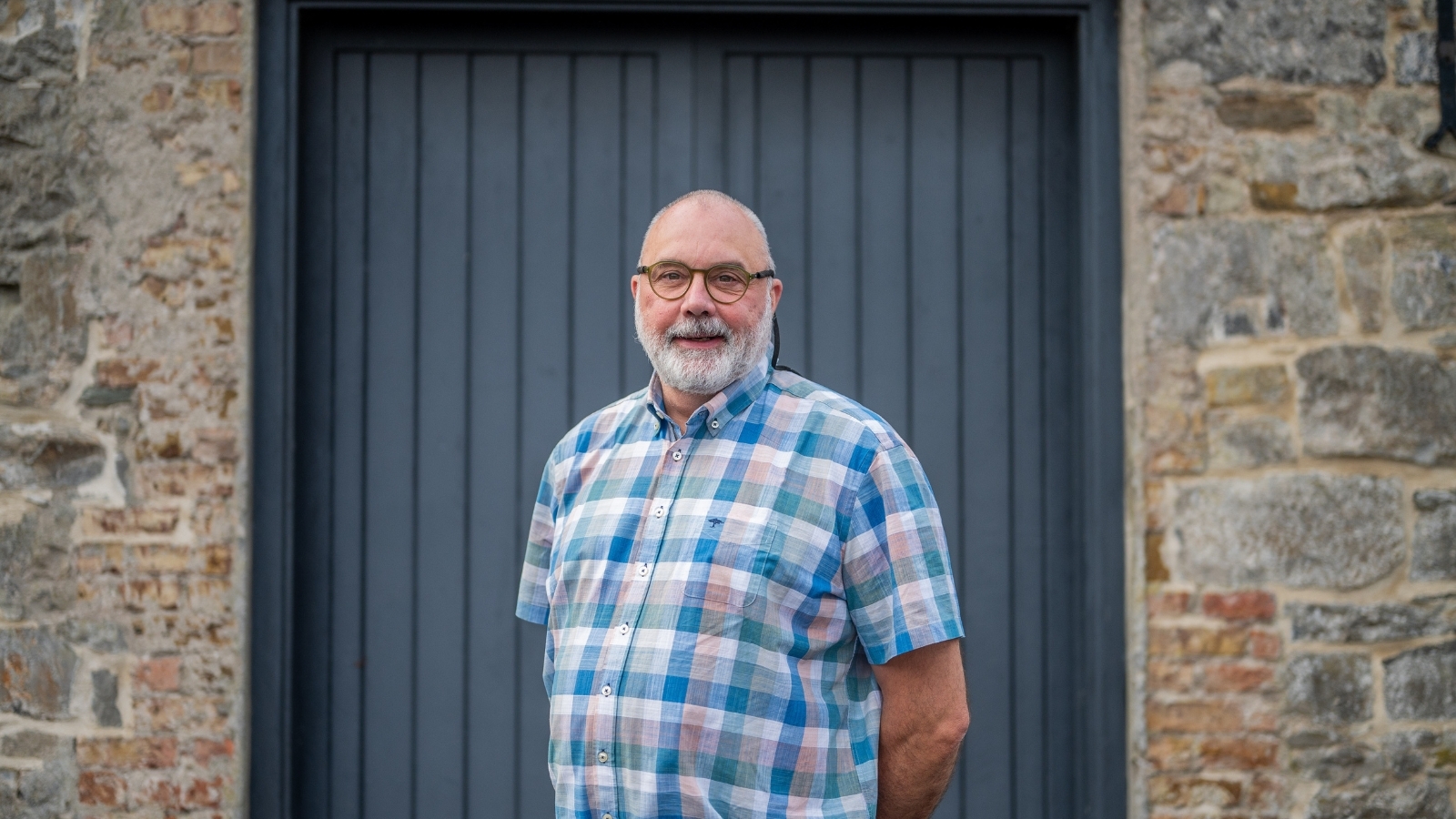Our Member And Trustee Davie Wants You To Join Our Campaign And Start Talking About Dementia

Dementia NI Member and Trustee, Davie, 60, from County Fermanagh, appears in our #StartAConversationToday video. Davie was diagnosed with dementia seven years ago. Here, he explains why talking about his dementia has helped him feel more positive.
First came denial
When I got my diagnosis, I was in shock really. It was like an emptiness. I felt like I was in a back hole. I didn’t want anybody to know at the outset. I told my wife Alison and children Errin and Ross immediately but I didn't tell anyone else at first. Only the four of us knew initially. I was in complete denial.
After nine or ten months, I told everybody. I had an article with the Belfast Telegraph about my dementia coming out so people were going to find out anyway. I started to tell close family and just about everybody before the article came out as I didn’t want them finding out about it in the paper. It was grand and a weight lifted off me.
I was starting to come to terms with my diagnosis by that stage and I wanted to tell people. The article helped me process my feelings, it brought it around and helped me face it and by the time the article came out I knew I was on the road to okay.
I learned to deal with different reactions
Most of my friends were very supportive and didn’t feel awkward. They asked questions about what was happening and what was going to happen. I appreciated that because it gave me an opportunity to show that I’m still the same person and that life goes on.
Other people were shocked and there were a few who ignored it completely and never spoke to me about it again. I lost contact with some of those people but I'm still in touch with some and they still never talk about it. I found it strange that they never asked me about it, but they probably couldn't accept it themselves.

The more I talk about it, the better it is
I wish now that I had been open from the start and told everyone straight away. Being diagnosed with dementia is nothing to be ashamed of. Back then, I was scared of the public perception of dementia and the misconception that a person is left useless overnight. There is still stigma attached to a diagnosis but I find the more I speak out about it, the better it is - and hopefully it will help others.
Talking about dementia helps to increase community awareness which is important as it leaves no mystery about what is going on. I live in a village near Enniskillen and there's no doubt that the people in our local community have really helped me. For example, I can find it challenging to handle money in shops but because everyone knows I live with dementia they look out for me in that way.
Speaking to others in the same boat is life-changing
It was fantastic to meet people living with the same condition through Dementia NI. The other members explained their own positions and how they'd come to Dementia NI. Seeing other people in the same boat really reinforced the feeling that I wasn't alone. I enjoy going to Dementia NI's Empowerment Groups and I'm happy that I've been able to support others as they've supported me.
My advice is for everyone to be as open as possible. There's nothing to hide. If you know someone who is living with dementia, you can ask them about it in a sensitive way, it may help them. It's as simple as saying, "How are you?" or if you know the person a bit better you can say, "I hear you're living with dementia, what's it like?" That wouldn't offend me at all. Friends have asked me that and I am happy to tell them about it.
Talking about your diagnosis can help you feel more positive.
When you talk about it is completely up to you. But when you're ready, try to tell somebody how you feel as you may find it eases the burden. I found it was easier speaking to friends than family initially. It can be difficult at first, but you might find that talking about your diagnosis helps you to feel more positive and get the right support. I wish I had done it earlier.
People with dementia don’t want sympathy or things done for us. We just want to get on and be treated as we were before diagnosis. People need to understand that we are the same people, just with a diagnosis of dementia, and they shouldn't treat us any differently.
Davie hopes that appearing in our campaign films and sharing his experiences will help challenge misconceptions and encourage others to talk about dementia. Help us #StartAConversationToday by going to Facebook and sharing one of our campaign films.